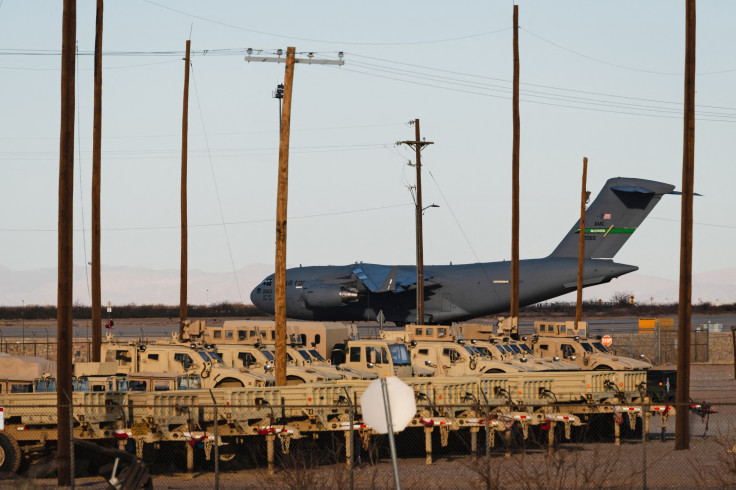
The Trump administration is dramatically expanding the military's role in border enforcement—and El Paso is now seeing the results.
According to Border Report, federal prosecutors have charged at least 87 individuals with trespassing on Department of Defense property in just the first week of May. The arrests follow the rollout of a new National Defense Area (NDA)—a 63-mile-long, 60-foot-wide buffer zone along the Texas border, now under military jurisdiction.
The zone stretches from the American Dam in El Paso to Fort Hancock on land that was previously managed by the International Boundary and Water Commission. The area is now marked only by small metal signs in English and Spanish, warning that the area is federal property. In practice it means it's become a militarized strip designed to deter unauthorized border crossings by allowing the military to perform immigration enforcement duties.
The first known arrest inside the El Paso NDA took place on May 2 when agents detained Leonel Sotelo Santillan, a Mexican national with a lengthy criminal record. He was found roughly 1.2 miles west of the Paso del Norte Port of Entry and is now being held without bond. Border agents determined he had no valid immigration documents and had crossed into the NDA illegally.
Sotelo Santillan's case has become emblematic of a new phase of enforcement on the southern border—one where prosecution is tied not just to entry, but to presence on land reclassified for military defense.
Similar arrests followed: in the span of just six days, nearly 90 individuals were prosecuted for entering the newly fortified zone. The U.S. Attorney's Office for the Western District of Texas confirmed the numbers to Border Report, though few other details have been released.
The move is part of a broader strategy by the Trump administration to militarize key stretches of the southern border. Just weeks earlier, the Department of Defense established a 170-mile-long National Defense Area across southern New Mexico, stretching from the Arizona state line to Santa Teresa. There, 82 migrants were arrested in the first week of enforcement, with Border Patrol handling most of the apprehensions.
Civil liberties advocates have warned that the growing presence of military-enforced zones raises red flags for due process and civil rights. They fear that the lack of public transparency and the military's expanded footprint could lead to abuses.
As of now it is unclear how long these zones will remain in place, and what oversight, if any, exists to ensure constitutional protections are upheld within them.
© 2025 Latin Times. All rights reserved. Do not reproduce without permission.





